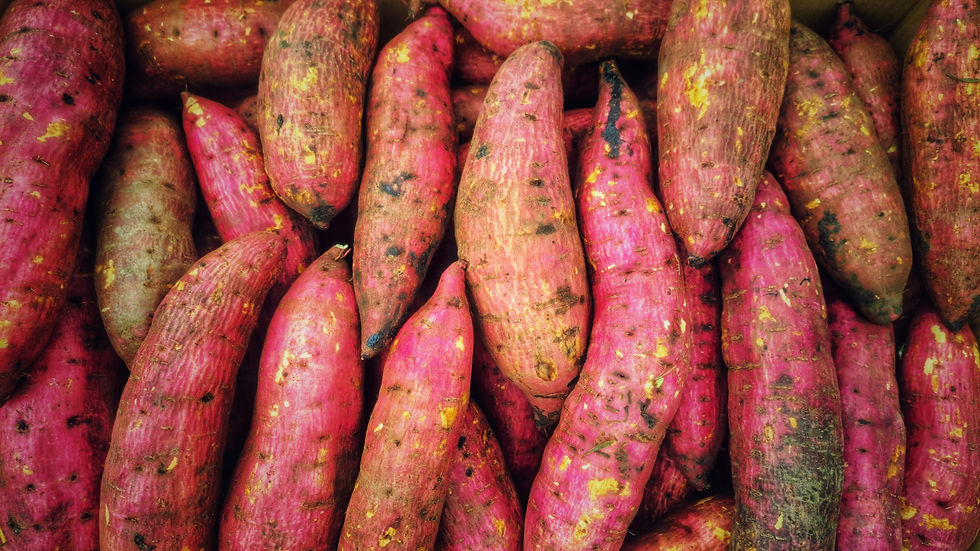Understanding Export Regulations and Compliance for Dried Sweet Potato Imports
- Rose
- Apr 5
- 2 min read
Updated: Apr 12
For businesses looking to import dried sweet potato, understanding international export regulations and compliance requirements is crucial. These rules vary across markets, and staying compliant ensures smooth customs clearance, avoids penalties, and builds trust with partners and customers.

1. Export Documentation Requirements
Dried sweet potato exporters must prepare a set of key documents that importers must also present at their port of entry.
Commercial Invoice: Details product description, quantity, and price.
Packing List: Provides packaging and weight details.
Certificate of Origin: Confirms the country where the sweet potatoes were grown and processed.
Phytosanitary Certificate: Ensures the product is free from pests and diseases.
Bill of Lading or Airway Bill: Used for shipment tracking and delivery.
2. Food Safety and Quality Certifications
Regulatory agencies in countries like the USA, EU, and China require that imported food products meet specific health and safety standards.
FDA Registration (USA): Required for food facilities exporting to the U.S.
EU Food Import Requirements: Must comply with EU hygiene regulations and may require RASFF checks.
China GACC Registration: Required for all food exporters shipping to China.
Certifications like HACCP, ISO 22000, and Global GAP demonstrate food safety controls and enhance import approval.
3. Product Labeling Regulations
Correct labeling is essential for customs clearance and retail compliance.
Mandatory Label Information: Product name, net weight, ingredients, origin, production and expiry dates, and nutritional information.
Language Requirements: Labels should be in the official language(s) of the destination market.
Barcodes and Lot Numbers: Often required for traceability.
4. Tariff Codes and Import Duties
Assigning the correct HS code ensures the proper duty is applied. Misclassification may lead to delays or penalties.
Typical HS Code for Dried Sweet Potato: 0714.20
Tariff Variations: Import duties vary by country and may be influenced by trade agreements or GSP benefits.
5. Compliance with Organic and Sustainability Standards
For niche markets, dried sweet potato labeled as organic or sustainably sourced must meet strict certification criteria.
Organic Certification: USDA Organic, EU Organic, or China Organic depending on the market.
Fair Trade and Sustainability Labels: Add marketing value but require third-party audits.
Conclusion
Navigating export regulations and compliance is crucial for successfully importing dried sweet potato. By ensuring proper certifications, documentation, and adherence to international food safety and labeling standards, importers can minimize delays and avoid costly compliance issues.
If you are searching for a reliable Vietnamese supplier, Mekong International offers high-quality dried sweet potato with full export documentation and competitive pricing. Contact us today!
MEKONG INTERNATIONAL CO., LTD
Contact Name: Mr. Ninh Tran
Phone: +84 909 722 866 (Phone / Whatsapp / Wechat)
Email: ninhtran@mekongint.com









Comments